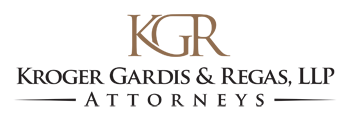Author: Jackson Miller
Seasoned legislators have already called this session one of the most tense they’ve experienced – and for good reason. With the many budgetary and social bills passed, those in the education profession will be deeply impacted by bills that have now gone into law. We at KGR anticipate that some of the new laws will turn into KGR Legal Help Desk (LHD) questions. To get ahead of those, this article addresses those action items prompted by the new laws.
1001 – The “budget bill” is always the centerpiece of any “long” session occurring in odd numbered years. While HEA 1001 includes the K-12 budget for the next biennium, it also contains a fund for “curricular materials” coupled with a prohibition for public schools charging for these materials. Items such as curricular books, technology, and software are clearly off-limits. You should know of any guidance from the Indiana Department of Education (IDOE) but know that ultimately it will be a court (or a future general assembly) that clears up any ambiguities. In the meantime, when in doubt of whether something is a “curricular material” run it through the definition: (1) systematically organized material (2) designed to provide a specific level of instruction and (3) in a subject matter category. And don’t forget to get an opinion on the constitutionality of fees that do NOT meet the definition of “curricular materials.” We anticipate some LHD inquiries on this one…
1002 – HEA 1002 is another new law that makes some significant changes. 1002 takes aim at career and technical education. First, it establishes the concept of a Career Scholarship Account (CSA) and gives the IDOE the ability to approve career courses and apprenticeship programs. For the 2024-2025 school year, certain school corporations must include instruction for all students regarding career awareness, including Career Navigation and Coaching (CNC). To support this, all public high schools are also mandated to hold at least one career fair during school hours. But perhaps most pressing: there is a new mandate to have 30-minute meetings with schools and third parties (which can be waived if schools participate in a CNC).
1447 – One of the other major pieces of new laws to affect school operations is HEA 1447, which provides new regulation on social matters related to students. First, it covers personal analyses, evaluations, and surveys conducted by third party vendors. The bill specifies that schools may not record, collect, or maintain the responses to surveys in a way that would identify an individual student. However, there are some broad exceptions to this rule, including any surveys gauging satisfaction with school programming, technology platforms, or curriculum. You should work this summer to ensure you comply. Another important part of 1447 are the provisions related to school libraries. There are three (3) new mandates just on that topic (all effective January 1, 2024): (1) create or update procedure for procuring a school library catalogue; (2) establish and publish on the school website a catalogue of content in the school library; (3) create or update library content removal request procedure.
1492 – HEA 1492 includes some changes to the uses of the newly renamed Secured School Fund. This includes expanding the grant’s use for items such as student support services, K9 units, and anti-bullying measures. In terms of more pressing action items, the law mandates a school district to: (1) ensure a qualified school safety specialist; (2) develop or update plan for each school and the entire district (Safe School Committee); and (3) participate in formation of county-wide School Safety Commission.
1558 – While the provisions of this law don’t go into effect until the 2024-2025 school year, HEA 1558 does hold some provisions that could greatly modify the way that reading is taught in classrooms. It mandates schools to adopt a curriculum aligned with the science of reading and that reading based on the three-cueing model is dropped. Additionally, 1558 requires that schools differentiate salary increases to teachers who possess a literacy endorsement.
1608 – HEA 1608 brings another round of mandates, this time concerning issues of sexuality. It states that a school or school employee may not provide any instruction on human sexuality to a student before the 4th grade. Additionally, 1608 requires a school to notify a parent in writing if their child requests the school to change names, pronouns, or titles.
486 – Last (for this article) but not least, SEA 486 contains regulatory relief for public schools. Specifically, 486 removes mandates to provide training on criminal gangs, homeless students, and seizures. The removal of the mandate for labor discussions perhaps got the most attention of anything in the session. School leaders now have the flexibility to manage a healthy relationship with their employees in the way that makes the most sense for their schools. Perhaps the biggest immediate impact is the regulatory relief provided for the teacher evaluations. For the most part, public schools have discretion on the details of the teacher evaluation system so long as it is still with the same four-point mandated scale and held annually.
The Indiana General Assembly always provided plenty of new things to do or at least consider. This year was far from an exception. Time to get your summer school done and figure out a plan to comply with the new laws. Until the next KGR Law Briefing, stay legal!
Navigating state and federal regulations can be challenging. For more information, contact the KGR Education Law and Public Policy team.









